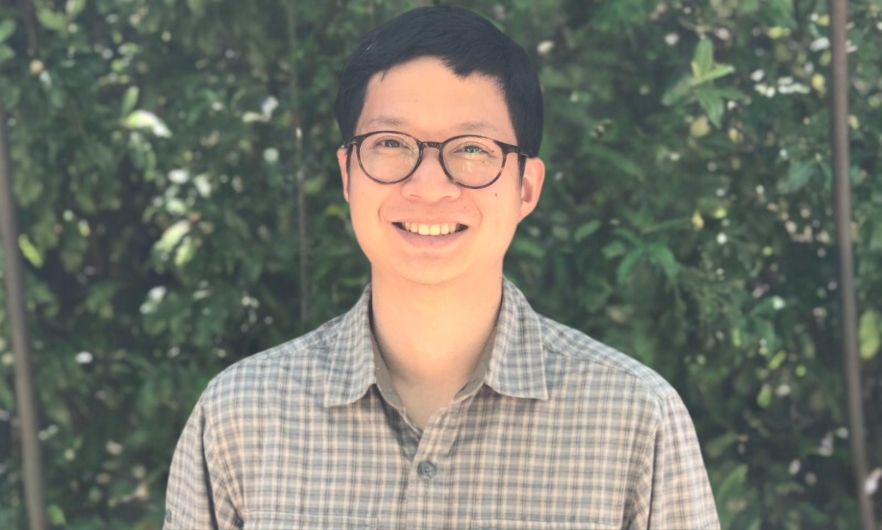Alumni Spotlight: Christopher Lo, ScM '23
Christopher Lo, ScM ’23, is a data science trainer in the Data Science Lab at the Fred Hutch Cancer Center where he teaches biomedical data science to the Fred Hutch Cancer Center community.

Christopher Lo, ScM ’23, is a data science trainer in the Data Science Lab at the Fred Hutch Cancer Center where he teaches biomedical data science to the Fred Hutch Cancer Center community, including researchers, biologists, clinical professionals, etc.
His thesis on genotyping large scale RNA-seq data, was titled “Genotype prediction of 336,463 samples from public expression data.”
Describe your current position and responsibilities in a way that will inform current and prospective students about career opportunities in biostatistics.
I currently teach biomedical data science as a free professional development service to the Fred Hutch Cancer Center community. Analyzing large quantities of data at a clinical, molecular, or epidemiological level is now essential in the biomedical sciences, and many professionals must learn about data science to do their job effectively! My students range from wet-lab researchers, clinical professionals, managers, and administration. A common situation is that a biologist trained for the wet lab now deals with large datasets generated from genomics experiments, but they don’t know where to start! I train these passionate professionals to learn how to write code and analyze data for the first time and teach them how to scale up their work in a reproducible and effective way. It’s a very fun and rewarding role as a teacher to train scientists to do their best work.
What has been your most satisfying job experience using your biostatistics background?
I love seeing students learn, grow, and work together. When I see students apply what they learn in the classroom on the science they are passionate about, it is very satisfying for me as a teacher. But most importantly, it is the relationships that I get to form with my students. I catch up with them over lunch, attend their talks and poster sessions, and see the next steps they take in their careers!
The program gave me an under-the-hood into the fundamentals of data science and biostatistics, which helped me become a better scientist and teacher.
How did your degree prepare you for current and future roles in biostatistics? What aspects of the Hopkins program did you find most useful?
The program gave me an under-the-hood into the fundamentals of data science and biostatistics, which helped me become a better scientist and teacher. I had worked in the field of bioinformatics and genomics for several years before returning to graduate school, and I always struggled to understand statistical methodologies in the genomics research. With my coursework and thesis, I have a much better grasp of how these tools worked, and how they can be improved. Important tools in genomics research, such as finding genes that have different levels of gene expression between groups, all rely on clever methodologies in biostatistics to minimize the amount of uncertainty. Even though I don’t work on biostatistical methodologies on a regular basis for this teaching position, I’m comfortable explaining challenging statistical concepts, and can help researchers find the right statistical tools they need for their problem.
What advice do you have for prospective or current students interested in our Department?
Graduate school at Hopkins Biostatistics is both an intellectual and social experience! Faculty are conducting cutting-edge research, and they are excited to share it with you and bring you on board for the experience. You are encouraged to mingle with various faculty and working groups to see what kind of research you are interested in. Life is also easier and more fun when you work together with your peers–working on challenging problem sets, going to office hours, sharing meals, enjoying the weekends–don’t be shy to build a community together.
What are your favorite memories of your time at Johns Hopkins Biostatistics?
The dedication of the faculty and staff in mentoring students was special to me. I felt that I was receiving a liberal arts education in which I was being treated as a peer by my teachers and mentors, which felt quite unusual in a large research institution. We would chat about interesting science, life in Baltimore, and share meals together.
What was your favorite thing about living in Baltimore?
The people and culture! The city is significantly more laid back and slower paced compared to other east coast cities that I have lived in … I knew most of my neighbors up and down my block! I also enjoyed living next to Patterson Park, which is full of fireflies in the early summer nights.
